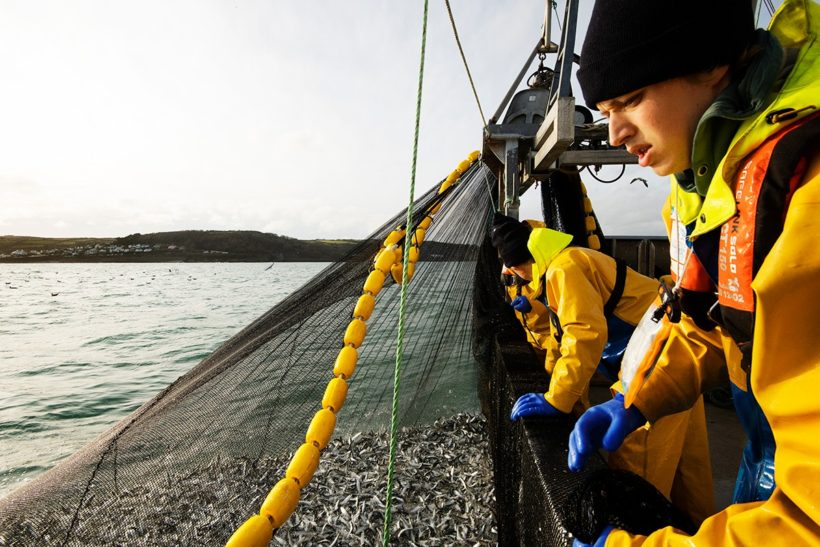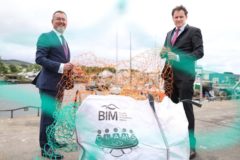Cornish sardines, and clams and cockles from Poole Harbour, were among the sustainable fisheries celebrated by the Marine Stewardship Council (MSC) for their contributions to protecting ecosystems and vulnerable marine life on World Ocean Day on 8 June.
Newly released data shows that in 2020, 100 improvements were made by fisheries across the globe as part of being certified to the MSC’s sustainability standard. Over half of these included improvements relating to endangered, threatened and protected species.
Cornish sardines also featured in the MSC’s World Ocean Day campaign #BigBlueFuture, which is encouraging consumers to choose seafood with the MSC blue ecolabel. Cornish sardine fisherman Tom Pascoe and his vessel Serene Dawn can be seen in a new MSC #BigBlueFuture global campaign film that was launched last week.
The Cornish Sardine Management Association (CSMA) is engaged in a fisheries science partnership with CEFAS focused on sampling catches to capture the variety of species caught, length frequencies, discards and interactions with marine wildlife. The sardine fishermen have also collaborated with the Sea Mammal Research Unit to conduct studies using onboard video cameras and an app to better enable reporting interactions with endangered, threatened and protected species.
The CSMA’s Gus Caslake said: “The hard work undertaken by CSMA members over the past few years has enhanced the management of not only the Cornish sardine fishery, but also of the wider marine environment.
“We’ve supported initiatives such as ‘Hauling Up Solutions’ and project i360 to assist and address bycatch, with industry knowledge and experience, to find workable solutions. The future looks good for the Cornish sardine, with excellent stock levels backed up by well-informed management advice.”
Poole Harbour clams and cockles became MSC-certified in 2018 as a result of a partnership effort between the Poole and District Fishermen’s Association, Southern IFCA and Dorset Wildlife Trust.
Southern IFCA inshore fisheries and conservation officer Sarah Birchenough said: “The current project work which is being undertaken, funded by MSC’s Ocean Stewardship Fund, is designed to drive performance and promote further innovation in the fishery, with regard to the protection of endangered, threatened and protected species, addressing the certification condition and ensuring the highest standards of operation in relation to the marine environment.”
George Clark, MSC UK and Ireland programme director, said: “Unsustainable fishing practices are a serious threat to the biodiversity and productivity of our oceans, yet we know that with proper management, depleted stocks can recover and damaged ecosystems can flourish.
“It’s great to see such fantastic work being carried out in South West fisheries, like these excellent examples in sardine, clams and cockles. Over 400 MSC-certified fisheries around the world are already leading the way in best practice. As we enter this crucial UN Decade of Ocean Science, it’s vital that we accelerate collaboration and progress across the globe if sustainable ocean outcomes are to be achieved long-term.”
Since the first fisheries entered assessment for MSC certification in 1999, almost 2,000 improvements have been made by fisheries to remain certified. The positive contribution that these fisheries make to the protection of the world’s oceans was recognised by two UN bodies in 2020, showing that MSC-certified fisheries are at the forefront of tackling over-fishing and supporting ocean biodiversity.
This story was taken from the latest issue of Fishing News. For more up-to-date and in-depth reports on the UK and Irish commercial fishing sector, subscribe to Fishing News here or buy the latest single issue for just £3.30 here. Above photo credit: Nigel Millard.






